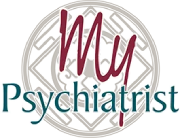Bipolar disorder types and symptoms.
Understanding the Spectrum, Symptoms, and Treatment Options For Bipolar Disorder
Bipolar disorder, formerly called manic depression, describes a mental health condition whereby the patient suffers from dramatic changes in mood, behavior, and mindset. This transition from mania (high, happy, optimistic) to Depression (low, sad, pessimistic) can happen as quickly and frequently as weeks at a time. This constant change can make life extremely difficult, as it can put a strain on relationships, impede progress on personal goals, and negatively influence your health.
The professionals at Hello My Psychiatrist have years of experience in diagnosing and treating bipolar disorder and the symptoms that accompany it. The team consists of a diverse, exceptionally well-educated, and experienced team of professional therapists and psychiatrists. They utilize a multifaceted approach to help you manage your bipolar disorder, with a combination of medicinal and therapeutic assistance.
Types of Bipolar Disorder
There are several types of bipolar and related disorders. Symptoms can cause unpredictable changes in mood and behavior, resulting in significantly reduced quality of life. The symptoms you experience depend on which mental state you are currently in:
- Bipolar I disorder. You’ve had at least one manic episode that may be preceded or followed by major depressive episodes.
- Bipolar II disorder. You’ve had at least one major depressive episode and at least one hypomanic episode
- Cyclothymic disorder. You’ve had at least two years of many periods of hypomania symptoms and periods of depressive symptoms (though less severe than major depression).
While the manic episodes of bipolar I disorder can be severe and dangerous, individuals with bipolar II disorder can be depressed for longer periods, which can cause significant impairment.
Although bipolar disorder can occur at any age, typically it’s diagnosed in the teenage years or early 20s.
Symptoms of Bipolar Disorder
What Is Mania and Hypomania?
Mania and hypomania are two distinct types of episodes, they have similar symptoms, but mania is more severe than hypomania and causes more significant problems in your social and work life. Mania may also trigger a break from reality (psychosis) and require hospitalization. Both a manic and a hypomanic episode include three or more of these symptoms:
- Increased activity or energy
- Abnormally upbeat
- A heightened sense of self-confidence (euphoric)
- Decreased need for sleep
- Racing thoughts / easily distracted
- Irrational or foolish decisions
Contact us for more assistance
For
your convenience:
Forms
When you arrive at our clinic for the first time you will be required to fill out several forms. To expedite your waiting time you may choose to complete these before your appointment and bring with you when you arrive.
When You Arrive
We ask that you show up 20 minutes before your scheduled appointment. When you do, make sure to have the following with you:
- Any medications or herbal supplements that you are currently taking
- Your insurance card
- Your photo ID, such as a driver’s license or passport
- Any previous medical or laboratory records
Clinic Policy
Please review the following documents to understand our clinic policy and procedures:

Major Depressive Episodes
Depressive episodes can seriously damage your personal relationships, career goals as well as your physical and mental well-being. If you recognize any of the following symptoms, it’s important to seek help from a professional as soon as possible. An episode includes five or more of these symptoms:
- Depressed mood, feeling sad or hopeless
- Either insomnia or sleeping too much
- Either restlessness or slowed behavior
- Fatigue or loss of energy
- Loss of interest, gaining no pleasure from activities
- Significant weight loss when not dieting, weight gain, or decrease or increase in appetite
- Feelings of worthlessness or excessive or inappropriate guilt
- Decreased ability to think or concentrate, or indecisiveness
- Thinking about, planning, or attempting suicide
Let Us Help Manage Your Bipolar Disorder Symptoms
It can be very challenging to cope with the constant emotional, mental, and physical changes that occur with a bipolar disorder. With your current state being so unpredictable, it can strain your friendships, romantic relationships as well as impinge on your career goals.
If you recognize these symptoms as being present in your life, you should consult with the professionals at Hello My Psychiatrist. Getting a clinical diagnosis is the first step towards treating and learning how to cope with bipolar disorder. Call or book an appointment online today to learn more!



